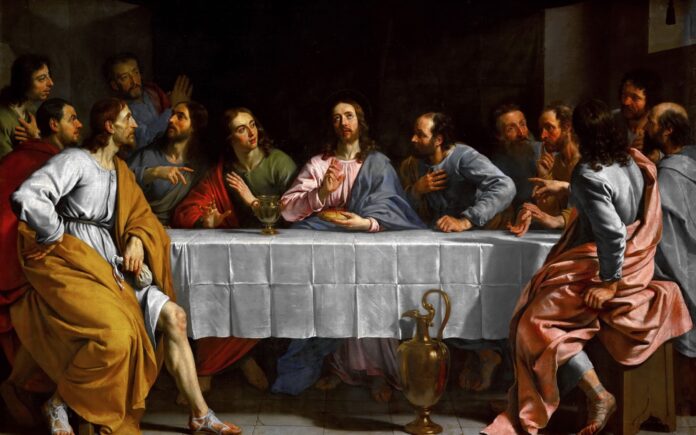Nigeria recently ignited a public conversation in response to a declared controversial prayer point. The significant man of God’s call to God was that his members might become the primary resource “Go-To Person” – within their respective families. The prayer further invoked that their colleagues would eventually find themselves beholden for sustenance. This piece of writing aims to examine this controversial assertion in light of the biblically recorded teachings of Jesus Christ that seemingly contradict such a disposition.
The Church as the Last Hope of the Masses in Africa amidst Mismanaged Wealth. Africa is, often recognized for its abundant resources and potential, sits paradoxically against its current bleak socio-economic settings. This situation brings to mind the statement of the former Liberian President, Sir Leaf Johnson, “Africa is not poor, but poorly managed.” The church in Africa is now perceived as the final sanctuary, the last hope for the masses, who reel under the deficiency of responsible governance.
The Church in Africa comes into focus as a beacon of hope against the backdrop of a well-resourced continent suffering from dire leadership, policy, and administrative deficiencies. This institution—with its overwhelming influence over the population, coupled with its socio-developmental contributions—can be viewed as the last bastion for a beleaguered citizenry .
Ironically, the African continent—the world’s second-largest and home to a myriad of resources such as gold, diamonds, oil, and uranium—suffers from acute poverty, unemployment, and great inequality. Johnson’s statement reflects on these contradictions by hinting at a wealth of resources mismanaged by its government.
Johnson’s assertion illuminates the fact that Africa’s wealth does not translate to her people’s general welfare. The disjointedness between resource wealth and societal prosperity points to systemic issues: persistent corruption, poor infrastructural development, and inadequate provision of basic amenities. This stagnation can be credited to a spectrum of elements, primarily concerning ineffective governance and mismanagement .
Amidst this gloomy landscape, the Church emerges as a beacon of light. Deeply ingrained in the socio-cultural fabric of Africa, it extends far beyond religious instruction, undertaking initiatives in education, healthcare, and more. This extensive involvement makes it the avenue of last resort for the masses neglected by unyielding and ineffectual administrative systems .
However, there is a need for the Church to efficiently manage the entrusted faith and expectations. For it to wholly embrace its figurative role as Africa’s lifeline, it must also grapple with the inherent challenges that mirror those of the larger society—corruption, nepotism, and complacency. Only then can it truly serve the people it vows to shepherd.
A core feature of Jesus’ teachings found throughout the New Testament is the promotion of love, humility, and selflessness, particularly towards the disadvantaged (Matthew 5:3-12). The Sermon on the Mount provides clear instruction counter-intuitive to the controversial prayer, with Christ championing blessings of a differing nature, including kindness, compassion, and righteousness or justice. These blessings promote unity and equality rather than fostering an environment of dependency.
Jesus Christ’s teaching encourages generosity and a selfless attitude, shown in the Parable of the Good Samaritan (Luke 10:25-37). This story urges believers to act benevolently to anyone in need, explanatory of a mentality contrary to wanting others to beg from them.
Furthermore, the Parable of the Rich Fool (Luke 12:13-21) warns against hoarding wealth or resources with the motive of making others dependent. Instead, Jesus advocates for the importance of being “rich toward God,” meaning storing up for oneself treasures in Heaven, a principle that opposes the desire to make colleagues dependent.
A pivotal Biblical example that contradicts the controversial prayer’s perspective is Jesus’s encounter with the rich young man (Mark 10:17-31). Jesus advises the man to “sell what you own and give the money to the poor,” an admonition against hoarding wealth or resources. This interaction underlines an essential Christian ideal: wealth and resources should serve as instruments of love, compassion, and assistance to the less fortunate rather than tools of exerting power and control.
Finally, in the scripture narrating the Last Supper (John 13:1-17), Jesus, the Master, washes the feet of His disciples – a task designated to the least esteemed in society. This act was a potent demonstration of humility, service, and equality asserting the gospel’s advocacy for mutual servitude over domination “
Whilst the intention behind the controversial prayer point possibly aspires to enhance the congregation’s economic empowerment, one cannot overlook the potential disconnect between this perspective and the teachings of Jesus Christ as recorded in the Bible. The embedded sentiments provoke intrigue, but careful examination of the Gospel seems to suggest a different path for Christians – one of selflessness, generosity, and humility rather than a pursuit of domination and making others dependent. It, therefore, becomes crucial for followers of Jesus Christ to continue fostering a balance between economic empowerment and adherence to the fundamental Christian values championed in the Bible.
In conclusion, while Africa is indeed blessed with incredible resource wealth, the mismanagement by its governments has handicapped its growth and prosperity. The Church, as a beacon of hope, possesses the potential to ameliorate the condition of the masses. However, it must first handle its internal issues to elevate itself from a place of despair to a foundation for hope and faith.









